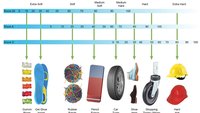Paging Marvel to the Red Phone!
Below are a couple studies where they compared various types of diets or different macronutrient combinations, and what both studies conclude all diets work, for those individuals who stay on them.
- http://jama.jamanetwork.com/article.aspx?articleid=200094 Each popular diet modestly reduced body weight and several cardiac risk factors at 1 year. Overall dietary adherence rates were low, although increased adherence was associated with greater weight loss and cardiac risk factor reductions for each diet group. These results suggest that strategies to increase adherence may deserve more emphasis than the specific macronutrient composition of the weight loss diet itself in supporting successful weight loss.
- http://www.nejm.org/doi/full/10.1056/NEJMoa0804748: We randomly assigned 811 overweight adults to one of four diets; the targeted percentages of energy derived from fat, protein, and carbohydrates in the four diets were 20, 15, and 65%; 20, 25, and 55%; 40, 15, and 45%; and 40, 25, and 35%. Reduced-calorie diets result in clinically meaningful weight loss regard less of which macronutrients they emphasize.
Mark Hub, a professor of human nutrition at Kansas State University, did an experiment and he lost 27 lbs over 10 weeks by cutting his calories and eating a convenience store diet (Hostess and Little Debbie snacks, Doritos chips, sugary cereals and Oreos, etc.). http://www.cnn.com/2010/HEALTH/11/08/twinkie.diet.professor/index.html
You can stand strong behind your beliefs or the science regarding what is the best diet, best macronutrient composition, best foods, etc … but if people cant stick to it and they end up putting back on the weight, how does that affect their self-esteem, their self-confidence? What works for you, may not work for me.
I like how Dr. Sharma put it: Not only, is what worked for you not necessarily the solution to everyone elses problem, but just because you have lost the weight, does not mean you understand the issues relevant to others struggling with their problem. Sure, your story (of weight loss) is of interest and yes, it is good to know that you are managing, but this makes you no more an expert on obesity than surviving cancer would make you an oncologist.
Just about the Eating Well with Canadas Food Guide, is not a weight loss guide and yes it does have industry influence. Heres a couple good blog about it from Dr. Freedhoff:
http://www.weightymatters.ca/2007/02/canadas-new-food-guide-i-give-it-c.html
http://www.weightymatters.ca/2006/11/canadas-food-guide-to-unhealthy-eating.html
http://www.weightymatters.ca/2008/06/leslie-beck-says-food-guide-makes-you.html







